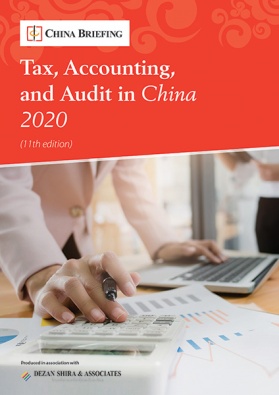Devonshire-Ellis: COVID-19 Will Last Until Summer and Return Next Winter
Businesses worldwide need to plan now for changes in communications and adopt technological solutions.
Op/Ed by Chris Devonshire-Ellis
During my 35 years in Asia – 25 of those in mainland China – I have had to adapt and overcome many problems impacting our business. This is the price of operating in emerging markets, so there cannot be many complaints. The only real issue is the unexpected may turn up from time to time.
It is arguable whether COVID-19 is “unexpected” – I have long said to my business partners that the only thing that really scared me about doing business in China was exactly this – a viral outbreak. Both Dezan Shira & Associates and I have lived through SARS, Bird Flu, H5N1, and now COVID-19. It’s safe to say we’ve seen how these things progress. But this time it’s different. And this is how:
- COVID-19 has spread to become a global pandemic;
- It appears easily transmissible; and
- There is no evidence it succumbs to warmer weather.
The role of any business owner from the corporate perspective is to protect their staff, then their clients. At Dezan Shira & Associates, and through our China Briefing platform, we reach out to many more people and we feel it part of our duty to provide free, credible advice without influence from any political or other actors. We tell it how it is.
In terms of protecting your business, it is important to look ahead. And seeing how COVID-19 is spreading, and how things have progressed since January, it is time to make a call: in my opinion, this thing is going to remain with us until the summer, and almost certainly return next winter. If I’m wrong, then I’m happy to be wrong! But I don’t think I am, and this means taking precautions, being ahead of the game, and preparing. COVID-19 is now out of the genie bottle, and it is going to affect us all in one way or another.
Preparation
While COVID-19 continues its ugly spread, rumors, gossip, and innuendo will spread with it. Conspiracy theories, scary talk, and scandal are human mischief traits that attach themselves to such disasters. They can infect your business and its employees too, which is why:
The Chief Information Officer is the most important person in your business right now.
If you don’t have one, or are a small business, you either need to take on this role or appoint someone who is capable. This can be a high-stress role as the CIO has responsibility for the infrastructure on which the main and subsidiary offices rely, including the smooth sharing of information across the organization, and the security of that information. It is vital that a CIO is able to coordinate with all staff, be aware of their location and situation, and is able to accurately disseminate company information, instructions, and assistance where required. Someone needs to fill this position. Now.
Get your corporate communications fully under your control
Foremost in the mind of the CIO at this time should be the security of confidential corporate information. Employees either are, or will be, working from home. Can they rely on the existing corporate infrastructure in place to do their jobs? Is their organization reliant on centralized, physical servers located in server rooms at HQ or in data centers? If so, are your employees at home and abroad able to access those servers sufficiently quickly to do their work under current circumstances?
If your company does not put in place an explicit short-term policy and take necessary measures to allow employees to do their work and meet deadlines, the inevitable consequence is that those employees will start to fall back on “non-corporate” channels of information exchange. In China, this generally will mean the “super-app” Wechat. Other options include Messenger, LinkedIn, Whatsapp, Twitter, Viber, Yandex, and many other Apps pertinent to your specific country. The dangers of pushing corporate content through such channels hardly needs to be explained here. Companies should do all that they can to look for viable alternatives as speedily as possible. We examined what those options are in the article COVID-19 Global Outbreaks – Coordinating Remote Business Operations.
The COVID-19 global spread
A problem with contemporary media is that despite global networks, many of them remain largely parochial and concentrate mainly on domestic issues. Al Jazeera and the BBC retain some area of global awareness, but most networks, and especially the print media are essentially domestically driven. That creates bubbles of data, all localized, when we all face a global pandemic. The result is mixed opinions, shouts from larger nations, and little coordination. Only the WHO itself seems to be tracking COVID-19 on a global basis. We have also produced an article on the impact of COVID-19 on China’s Belt and Road, with a map showing the affected BRI nations. That can be viewed here.
Otherwise – it is mainly all local data being discussed. As humans we are a little selfish in this regard – only concerned with what is happening in our own backyard. But COVID-19 doesn’t care about that. In terms of its total spread, the Centre for Disease Control now shows it extends to these countries (updating map).
What is noticeable about this is the number of countries that are all or partially in perpetual tropical climates – India, Indonesia, Malaysia, Philippines, Singapore, Sri Lanka, Thailand, Vietnam in Asia, nearly all of the Middle East, large parts of Central and South America, in addition to a scattering of African countries. The average temperature today in the Asian countries listed is 30 degrees Celsius (86°F), in the Middle East it is 24 degrees Celsius (75.2°F), in Central & South America it averages 19 degrees Celsius (66.2°F), and in Africa 24 degrees Celsius (75.2°F).
US President Trump has stated that he thought the virus would be “gone by spring”. Today, in Washington, the temperature will rise to a height of 15 Celsius (59°F) and in Miami, 26 Celsius (78.8°F). It is already way above that in much of Southeast Asia, while the Middle East, Africa, and Central and South America will continue to be warm. My suspicions are that COVID-19 is more resistant to temperature than most Influenza type infections are, and that it will be hanging around. I also expect as a result of this, a new resurgence in infections from next winter onwards. I hope I am wrong. But my gut instinct tells me to prepare for the worst and hope for the best.
COVID-19 will necessitate a change in business operations
This means there will be changes in actual business operations. Offices will no longer house multiple employees. Staff will need to be deployed from home. Personnel in remote offices and other countries will need to be empowered to deal with local issues. I already outlined the communications issues above; however, having your business able to effectively with staff working remotely means getting new operational systems into your business. With COVID-19 looking as if it will continue a rapid spread across Europe and North America, now is the time to assess these systems.
Access via RDP (which encrypts data in transmission) can be considered for systems that are not browser-based, and which do not restrict access to office environments. For those systems that are normally restricted to office-based access, the company will need to consider putting in place VPN connections between each employee’s computer and a capstone server that can link to the relevant corporate server. Only very limited destination sources should be enabled for the VPN, to minimize the system’s exposure to the internet and thereby reduce the security risk when employees connect with a wider range of non-corporate resources.
Computers operating in such remote environments should be protected by tools, including anti-virus software, as such laptops are no longer inside the security perimeter of your office environment anymore. The anti-virus software installed in your office might not even be updated promptly when laptops are outside of the office, as certain kinds of deployments would only allow updates from internal resources. BitLocker is another tool that should be considered, as the possibility of a laptop being lost or stolen increases rapidly when lots of staff work remotely. BitLocker adds an extra level of access security by encrypting information residing on the local hard disk of the computer.
Again, there is more on the technical aspect of restructuring your business IT to cater for staff working from home in the article COVID-19 Global Outbreaks – Coordinating Remote Business Operations.
It is important to note that preparing your business for this also strengthens it. Now is the time to act. As head of my company, we have put in place and will upgrade the technical aspects of our business to incorporate more IT in workflows and to enable staff, if necessary, to move away from the traditional office environment and work more often from home. Should COVID-19 strike again next winter, we will be prepared. Now is the time for your business to be doing the same.
Related Reading
-
- China’s COVID-19 Recovery: What Lies Ahead for Foreign Investors
- China’s Support Policies for Businesses Under COVID-19: A Comprehensive List
 Operating Your China Business During a Crisis and Contagious Disease Outbreaks
Operating Your China Business During a Crisis and Contagious Disease Outbreaks
In this special edition of China Briefing magazine, we identify key concerns for business managers during infectious disease outbreaks, including managing a remote workforce, using IT solutions to navigate business operations more efficiently and securely, and addressing the legal risks in case contractual obligations are not satisfied.
About Us
Chris Devonshire-Ellis is the Chairman of Dezan Shira & Associates and founded the practice in China in 1992. He has written over 30 books on doing business in Asia. Dezan Shira & Associates has since grown to have 28 offices throughout Asia and liaison offices in Europe, the US, Russia, and South America. For assistance or advise please contact the firm at info@dezshira.com or visit us at www.dezshira.com.
- Previous Article Shanghai zieht ausländische Investitionen an, öffnet den chinesischen Finanzsektor
- Next Article 3 Reasons Foreign Investors Should Stick with China amid the Coronavirus







